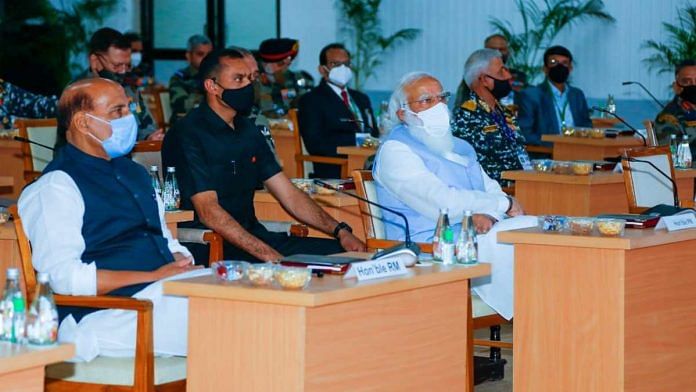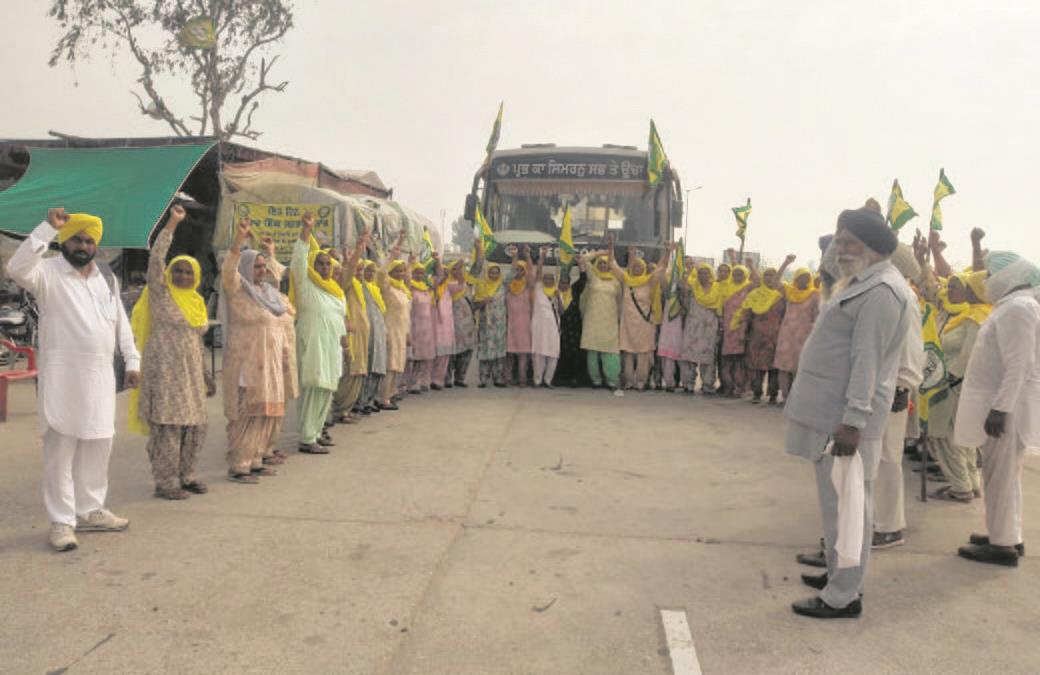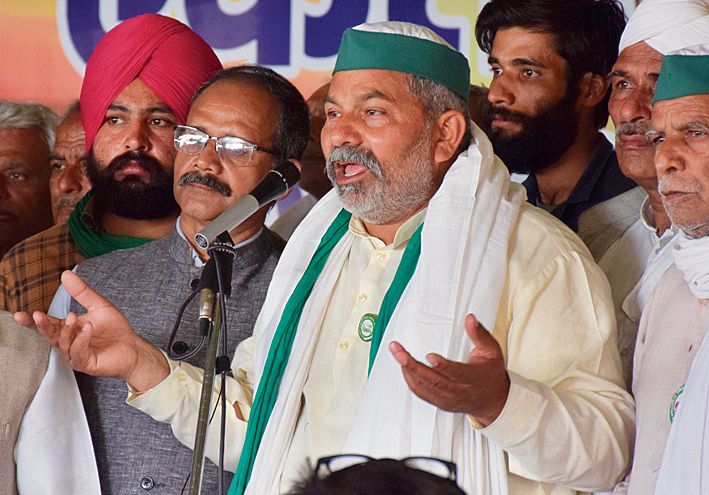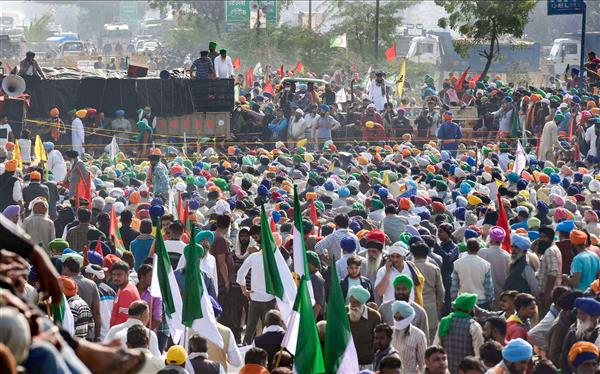Addressing Combined Commanders Conference in Gujarat, PM Modi highlighted the need to develop the military into a ‘future force’ taking note of rapidly changing technological landscape.

Prime Minister Narendra Modi and Defence Minister Rajnath Singh at Combined Commanders Conference in Gujarat’s Kevadia on 6 March 2021 | PIBText Size: A- A+
New Delhi: Asking the armed forces to shed the legacy system and practices, Prime Minister Narendra Modi Saturday called for enhancing indigenisation in the national security system, not just in sourcing equipment and weapons but also in the doctrines, procedures and customs practised in the three services.
Addressing the top commanders of the three services at the Combined Commanders Conference in Gujarat’s Kevadia, Modi also called for a holistic approach, focused on breaking down of civil-military silos and on expediting the speed of decision-making.
Taking note of the rapidly changing technological landscape, the PM highlighted the need to develop the Indian military into a “future force”, a statement released by the Prime Minister’s Office (PMO) said.
The PM also advised the services to rid themselves of legacy systems and practices that have outlived their utility and relevance, it added.
The statement also said PM Modi particularly appreciated the inclusion of Junior Commissioned Officers and Non-Commissioned Officers in this year’onfernce.
Also read: PM Modi hands over indigenous Arjun tank to Army in Tamil Nadu
Indigenisation of military customs
It was not immediately clear what old practices and customs the PM spoke against as the forces draw their traditions from the British era.
Indigenisation of British practices has been a focus area over the past few years, especially since the Modi government came to power in 2014.
Military personnel now increasingly greet each other with ‘Jai Hind’ rather than with ‘Good Morning’, ‘Good Afternoon’ or ‘Good Evening’, an officer in one of the three services said.
Moreover, the marching tunes of the military has now become more or less based on Indian tradition, the officer added.
There has also been an increasing demand among various quarters to do away with the Sahayak system in the armed forces, especially the Army.https://e913a1d655bbf0c6e1497ad3457bd771.safeframe.googlesyndication.com/safeframe/1-0-37/html/container.html
The British officers used to get allotted at least one jawan to take care of their clothes, shoes and other items. It slowly took the turn of able-bodied jawans at peace stations getting posted for household chores.
The formal uniform of the armed forces are also drawn from the British era with brass belts and insignias, another officer said.
Modi appreciates armed forces
Meanwhile, speaking to the highest civilian and military leadership of the national defence system, the PM conveyed his strong appreciation for the resolute dedication shown by the armed forces over the past years, in the context of the Covid-19 pandemic and the challenging situation on the northern border.
He emphasised the need to optimise manpower planning in both military and civilian parts of the national security architecture.
The prime minister pointed out that the country would be celebrating 75 years of its independence next year, and called upon the armed forces to use the occasion to undertake activities and initiatives that would inspire the youth of the country, the PMO statement said.
Also read: Modi dares China, tells Indian Army ‘our enemies have seen your fire and fury’

























































































































